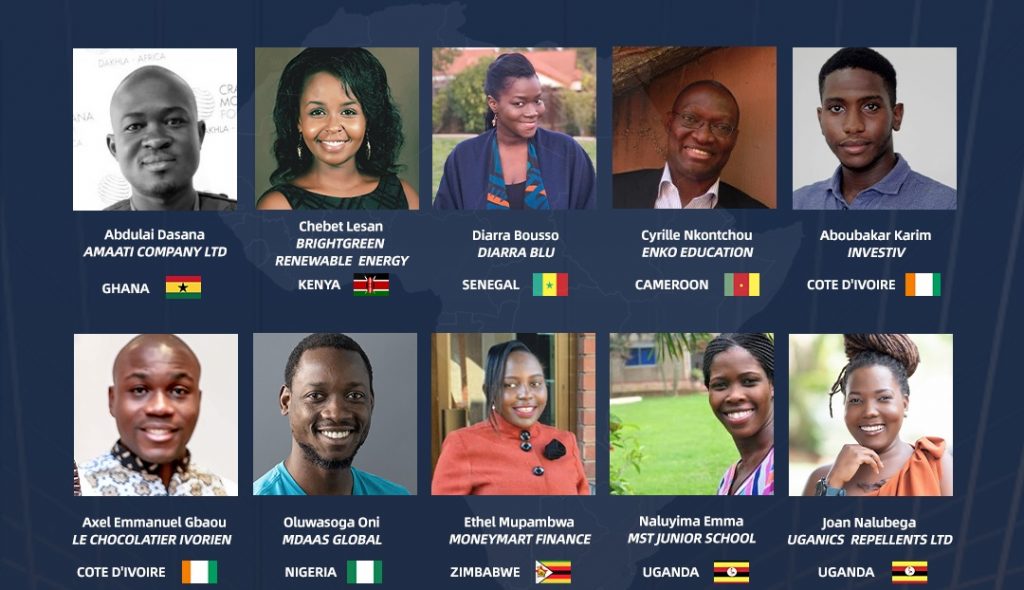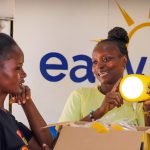Chinese consumer electronics company Honor is set to unveil its latest lineup of smart devices for the South African market. How about we forecast…
Top ten finalists announced for African Business Heroes programme

The ten finalists have been announced for this year’s African Business Heroes programme.
The programme is part of the Africa Netpreneur Prize Initiative (ANPI) that was established by the Chinese investor and philanthropist, Jack Ma.
The winner of this year’s programme will receive $300 000
Ma comments on the high caliber of African entrepreneurs and this year’s selected top 10 finalists.
“I continue to be amazed by the passion, resilience, and vision of Africa’s entrepreneurs, and I look forward to meeting these ten extraordinary businesswomen and businessmen at the finale. I am excited to learn more about how they are driving positive change and progress across the continent,” said Ma.
The finalists will get their chance to pitch their business models in front of judges on the 13th and 14th November this year. The judges will include Jack Ma, the Executive Vice Chairman of Alibaba, Joseph C Tai, Zimbabwean entrepreneur, Strive Masiyiwa, and Nigerian female entrepreneur and author, Ibukan Awosika.
The winner of this year’s African Business Heroes programme will receive grant funds of up to $300 000 (+/- R4949172.00).
The finalists will also receive publicity and exposure due to the programme being televised through prominent television networks. The entrepreneurs will also receive training at the Alibaba headquarters through the eFounders Fellowship programme.
The application process
The search for the African Business Heroes began on the 6th of April when the applications for the programme opened. The top ten finalists were chosen from than 22 000 applicants from 54 African countries.
The finalists were chosen from eight different African countries: Zimbabwe, Cameroon, Uganda, Ghana, Senegal, Kenya, Nigeria, and Côte d’Ivoire. Half of the finalists chosen were female entrepreneurs.
To be eligible for the African Business Heroes Programme the finalists had to meet the following requirements:
- Co-founder or founder of the company
- Obtain African citizenship and/or have a parent or grandparent who has African citizenship.
- The company had to have its headquarters based in an African country.
- The company had to be older than three years and have a revenue history of three years.
The ten finalists
Nigerian entrepreneur, Oluwasoga Oni is the CEO and Co-Founder of Mdaas Global. The startup develops and manages “tech-enabled diagnostic centres” in communities that do not have sufficient clinics and provide affordable and high-quality healthcare to patients.
Ugandan farmer, vet, and educator Dr Emma Naluyima Nugerwa founded the MST Junior School that aims to provide its pupils with the skills needed to solve agriculture issues such as malnutrition, waste mismanagement, and food insecurity.
A Malaria survivor and Ugandan social entrepreneur, Joan Rukundo Malubega, founded Uganics, a startup that manufactures and distributes antimalaria soap. She founded this startup because millions of people die from Malaria every year. The soap is sold internationally for a high profit and the profits are used to subsidize the poor communities.
Mame Diarra Bousso Gueye founded Diarrablu, a Senegalese fashion tech company. The startup aims to empower African artists and build “an ethical and sustainable fashion future centered around ancestral African craftsmanship.”
Zimbabwean entrepreneurs, Ethel Mupambwa Co-Founded the fintech startup Moneymart. The startup is a microfinance company that provides its clients with unique business loans to MSMES and private individuals to assist them in getting access to quality solar-lighting-kits.
Cyrille Nkontchou, an economist based in Cameroon, founded Enko Education. The startup manages a large network of private schools in Africa that teach the International Baccalaureate curriculum. Their aim was to “democratize access to quality international education for African youth.”
A Ghana-based startup called Amaati Company Limited was founded by Abdulai A Dasana with the aim of building sustainable communities by using the neglected crop, Fonio. Dasa has worked as an agricultural technologist and has more than a decade of experience working in finance.
A Kenyan entrepreneur named Chebet Lesan aims to reduce the cost of cooking in rural communities through their startup, Bright Green R. Energy. The startup aims to produce fuel bricks that will assist in making cooking more affordable.
Based in Côte d’Ivoire, entrepreneur Axel Emmanuel Gbaou founded the startup Le Chocolatier Ivorien in order to provide handcrafted and quality chocolate through sustainable cultivation. The startup has also partnered with female growers to ensure the even distribution of income.
Another finalist from this region is the CEO and Founder of INVESTIV, Aboubakar Karim. They aim to assist in developing African agriculture by using the latest technology to support small farmers throughout Côte d’Ivoire and West Africa.
Read more: Semi-finalists for Africa’s Business Heroes Competition 2020
Read more: Five tips for female tech entrepreneurs [Opinion]
Feature Image: African Business Heroes, Facebook

